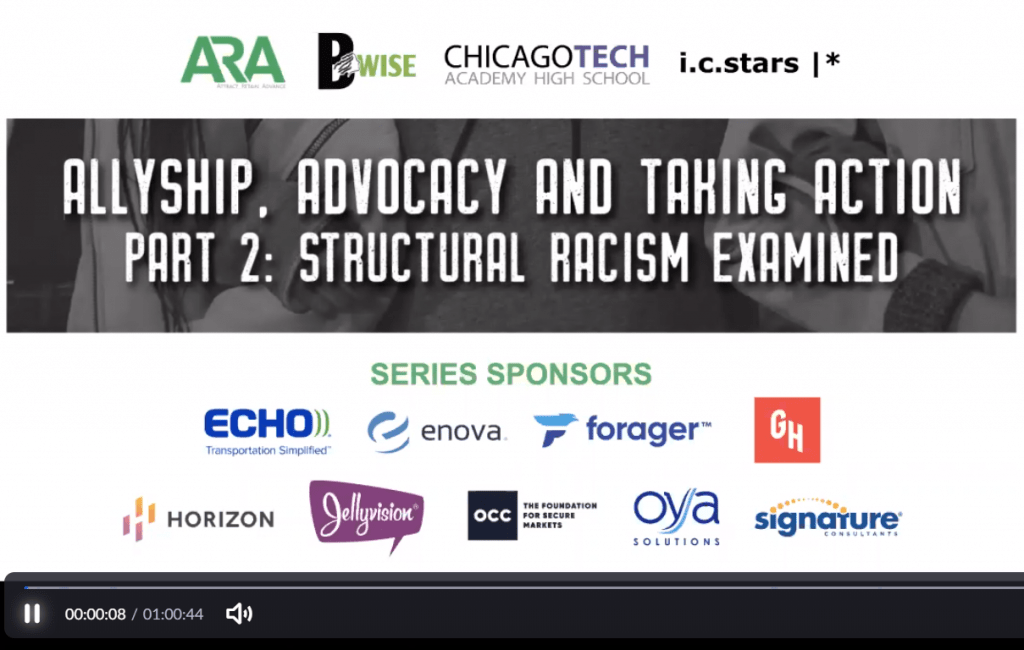September 15th
During the discussion, our panel of experts explored how institutional racism shapes lives from childhood to adulthood in the United States, discussing where structural racism thrives in America’s institutions. We also examined how LGBTQ, people with disabilities and women are affected by the written and unwritten rules of these institutions. And, we addressed intersecting demographic traits that shape our unique identities and profoundly affect our experiences at work and in our communities. The monthly series will run through December 2020 and we encourage everyone to register for these moving events.
TAKEAWAYS
Change starts at the top. Leadership must take ownership for addressing the fact that structural racism exists. Then, they must commit resources throughout their organization to break it down. As Major Irvin II said, “As far as police departments are concerned, change starts at the top. The leader must hold his or her people accountable for what they’re doing…and have a clear direction on where they’re going.”
Breaking down structural racism hinges on educating of the next generation of leaders. Dr. Towns cited a recent study indicating 60% of white managers believe there is more racism against them than there is against minorities. We have to figure out why that is the case and understand where structural racism is occurring and its impacts. Lack of understanding and knowing the system exists is the strength of the system itself. Dr. Towns said it best, adding, “The goal of my teaching is to ensure the next group that comes up to assume these positions of power understands what that system is and then works to break it down.”
We must continue having tough conversations. Nothing will change unless white people, especially, reach out of their comfort zones and engage in difficult conversations. This is the only way to break down barriers and address systemic inequities for Black Americans, people of color, people with disabilities, LGBTQ and other minorities. Pointing to her own experience, Ms. Sowash added, “Until we, as white people, choose to have some tough conversations with our families, peers and the older generation and make sure we’re having the right conversation with our children, then things are not going to change. We have to recognize that power structure exists and we have to recognize that it has to be broken.”
If you weren’t able to attend or want to listen again, you can view the replay here. And, feel free to share on social media with the hashtag #ARAallies and tag @ARAmentors.

SPEAKERS




FEATURED SPONSOR & SPEAKER


Enova is a multinational company based in Chicago that uses technology to develop innovative financial products and services for individuals and businesses. We have provided nearly 7 million customers around the globe with access to more than $20 billion in loans and financing. At Enova, our 1,200+ talented team members come from a variety of backgrounds and experiences. We hire for culture-add, versus culture-fit because we know diverse perspectives create the best answers. But our work doesn’t end there. Our day to day decisions and policies embrace equity and inclusion, fostering a sense of belonging at Enova. Visit enova.com.
RESOURCES
My Block My Hood My City
Center for Wrongful Conviction
The Groundwater Approach
Interrupting Bias: Calling Out vs. Calling In
The NAACP Legal Defense Fund